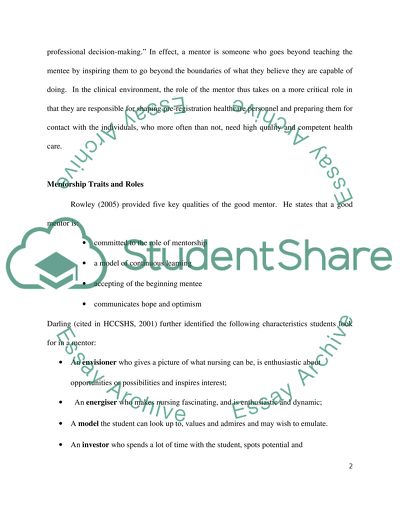Cite this document
(“Mentorship for professional practice Essay Example | Topics and Well Written Essays - 3250 words”, n.d.)
Retrieved from https://studentshare.org/sociology/1502572-mentorship-for-professional-practice
Retrieved from https://studentshare.org/sociology/1502572-mentorship-for-professional-practice
(Mentorship for Professional Practice Essay Example | Topics and Well Written Essays - 3250 Words)
https://studentshare.org/sociology/1502572-mentorship-for-professional-practice.
https://studentshare.org/sociology/1502572-mentorship-for-professional-practice.
“Mentorship for Professional Practice Essay Example | Topics and Well Written Essays - 3250 Words”, n.d. https://studentshare.org/sociology/1502572-mentorship-for-professional-practice.


